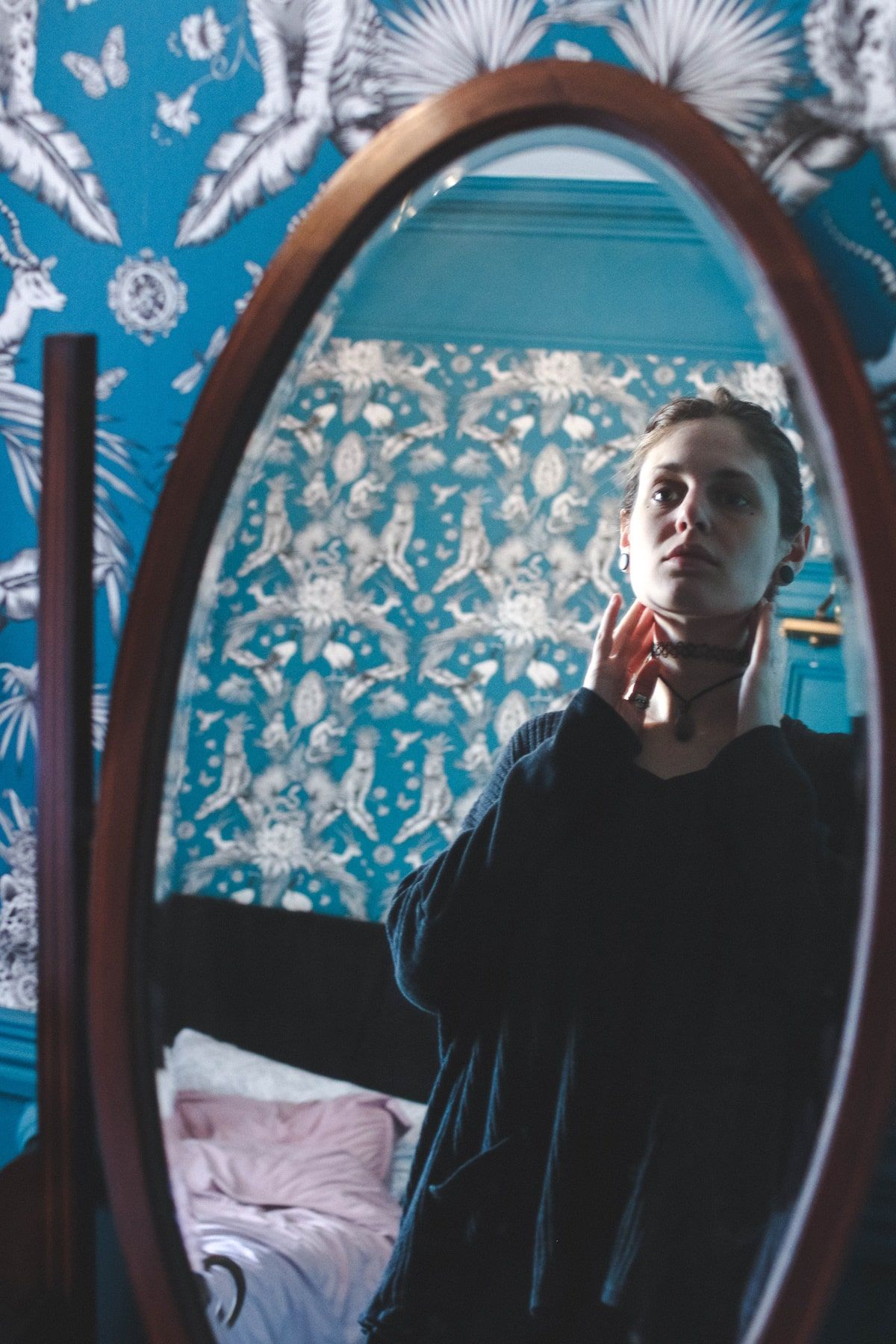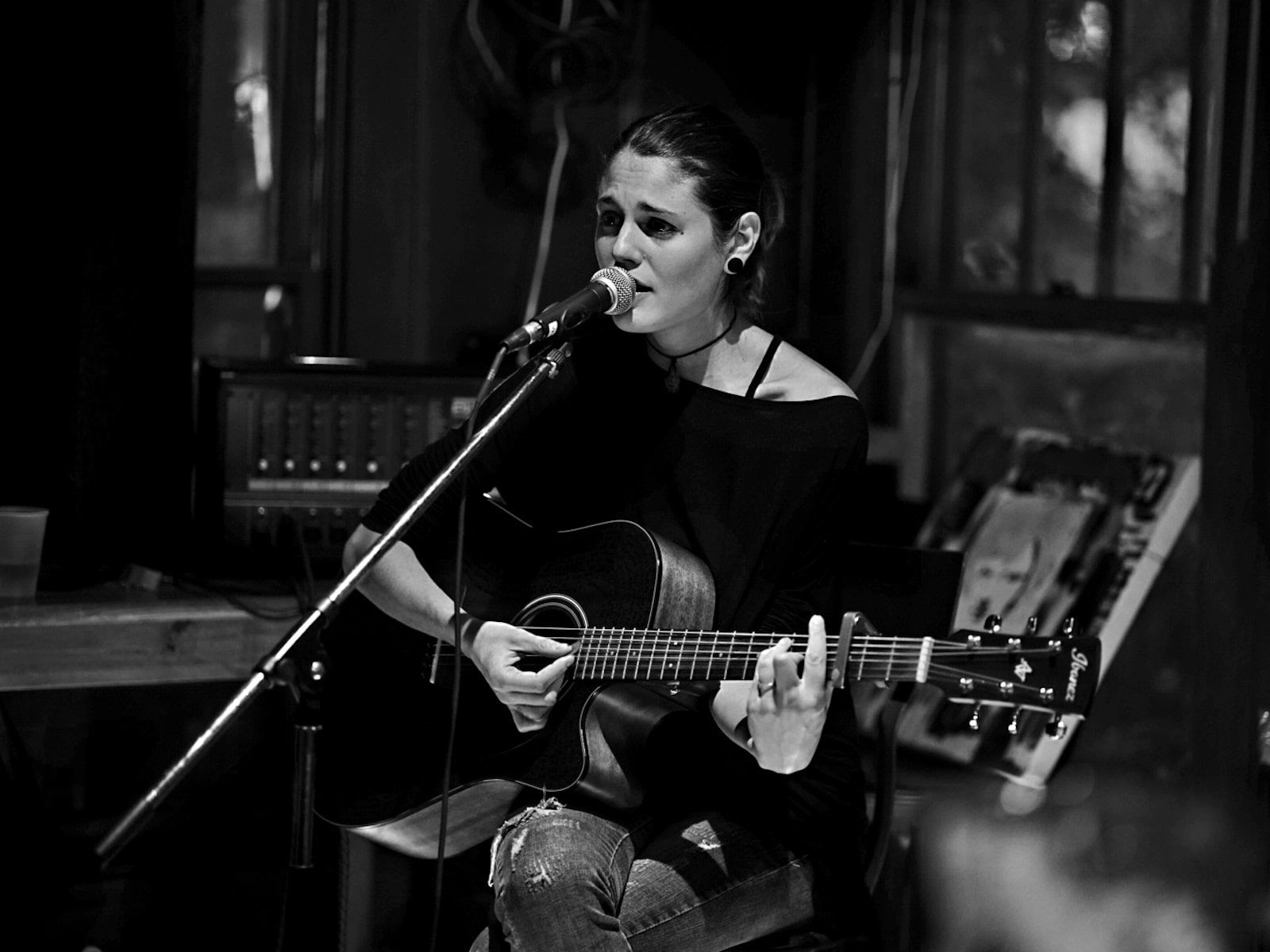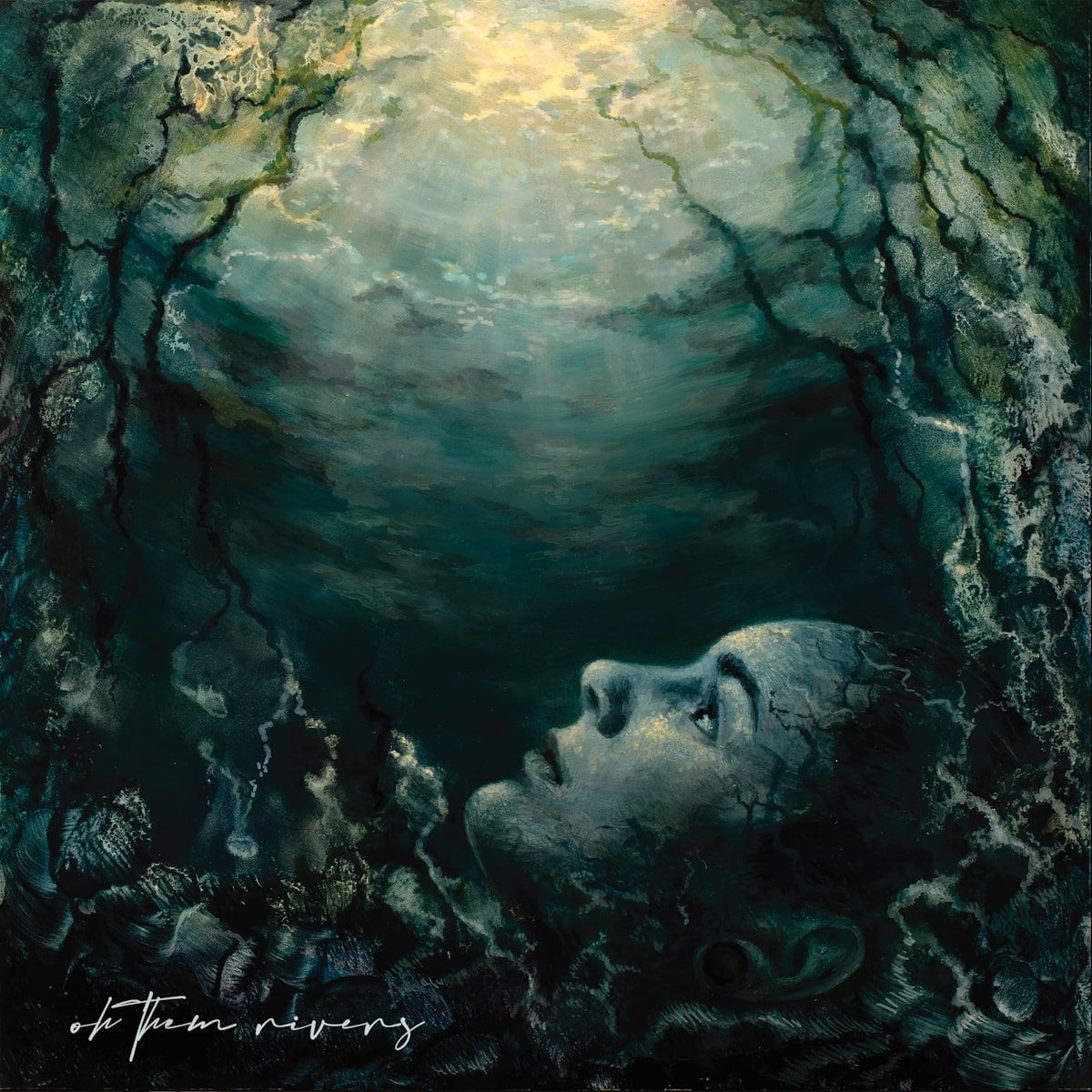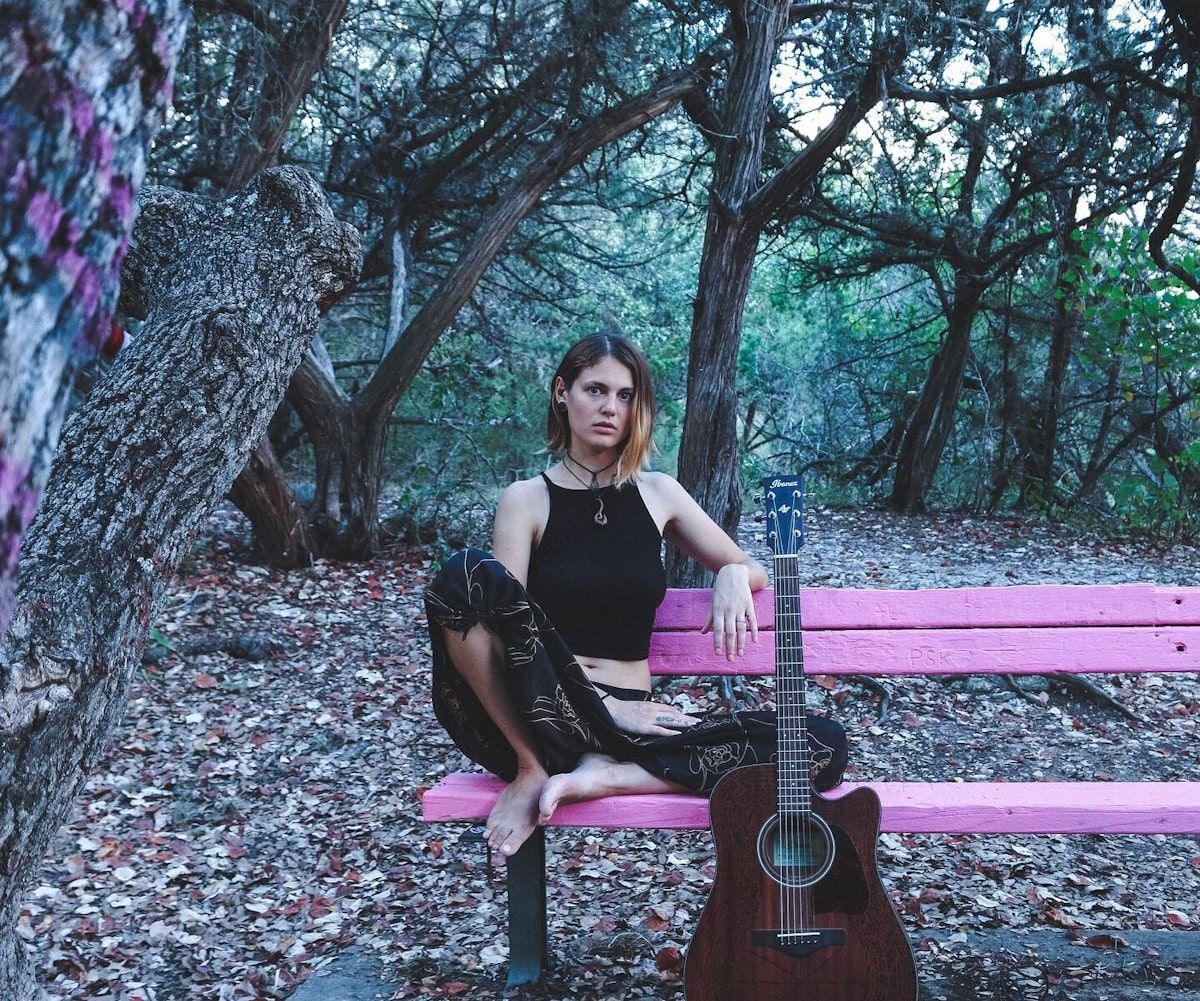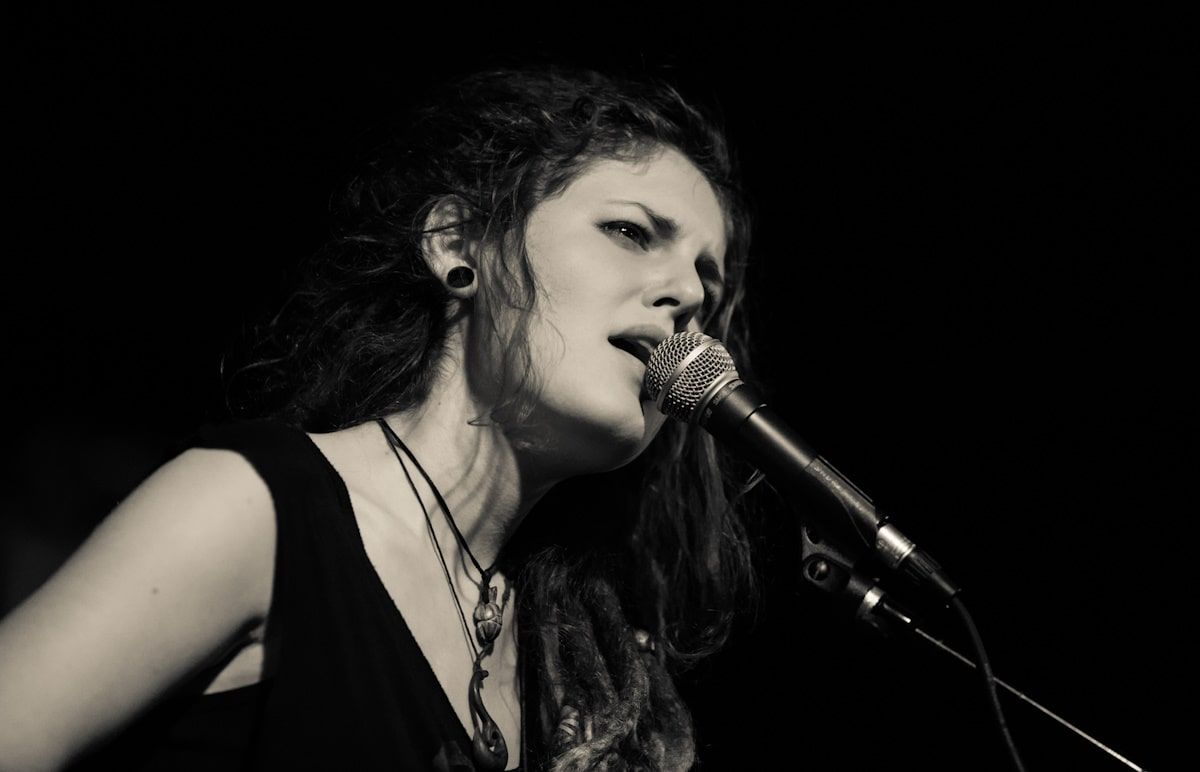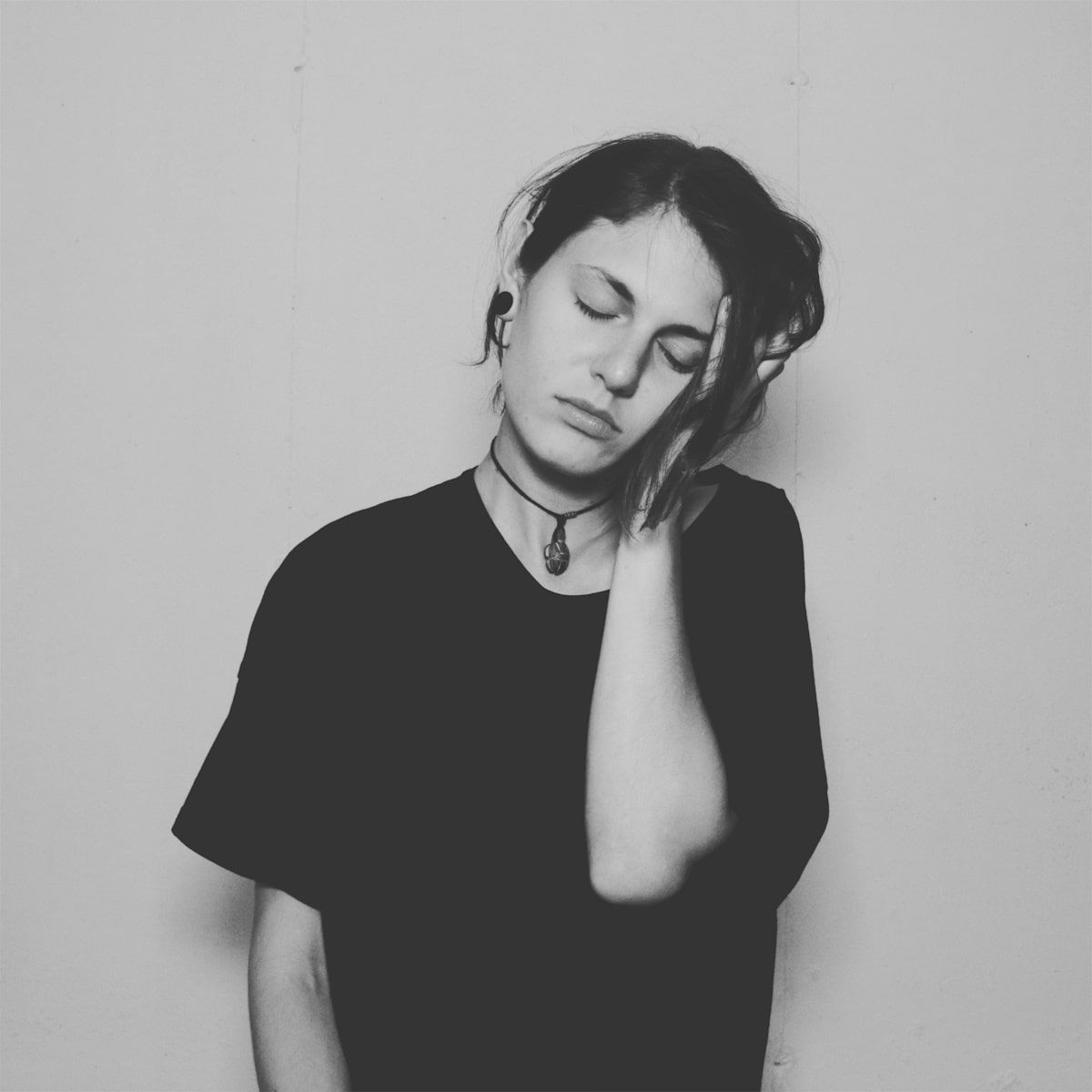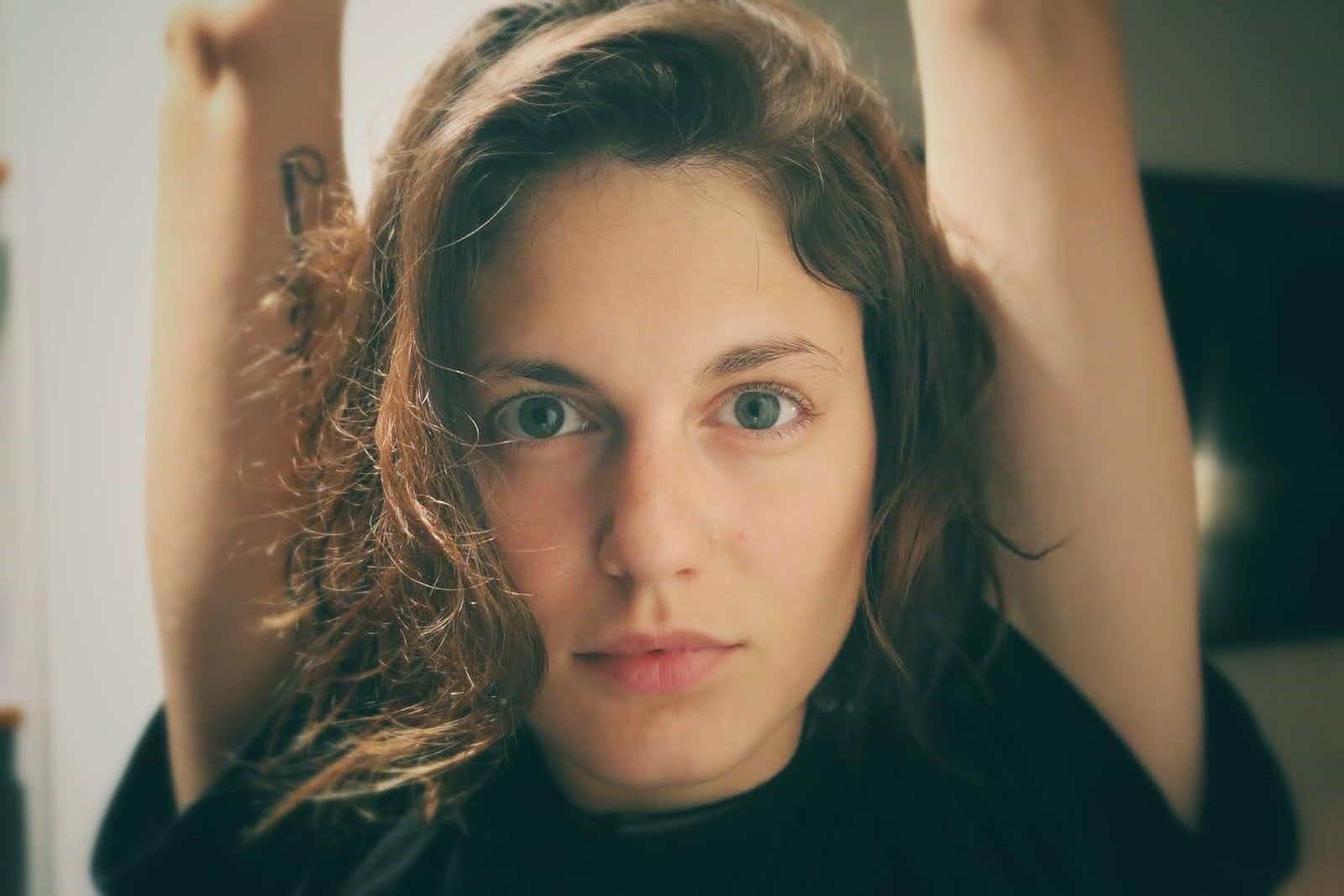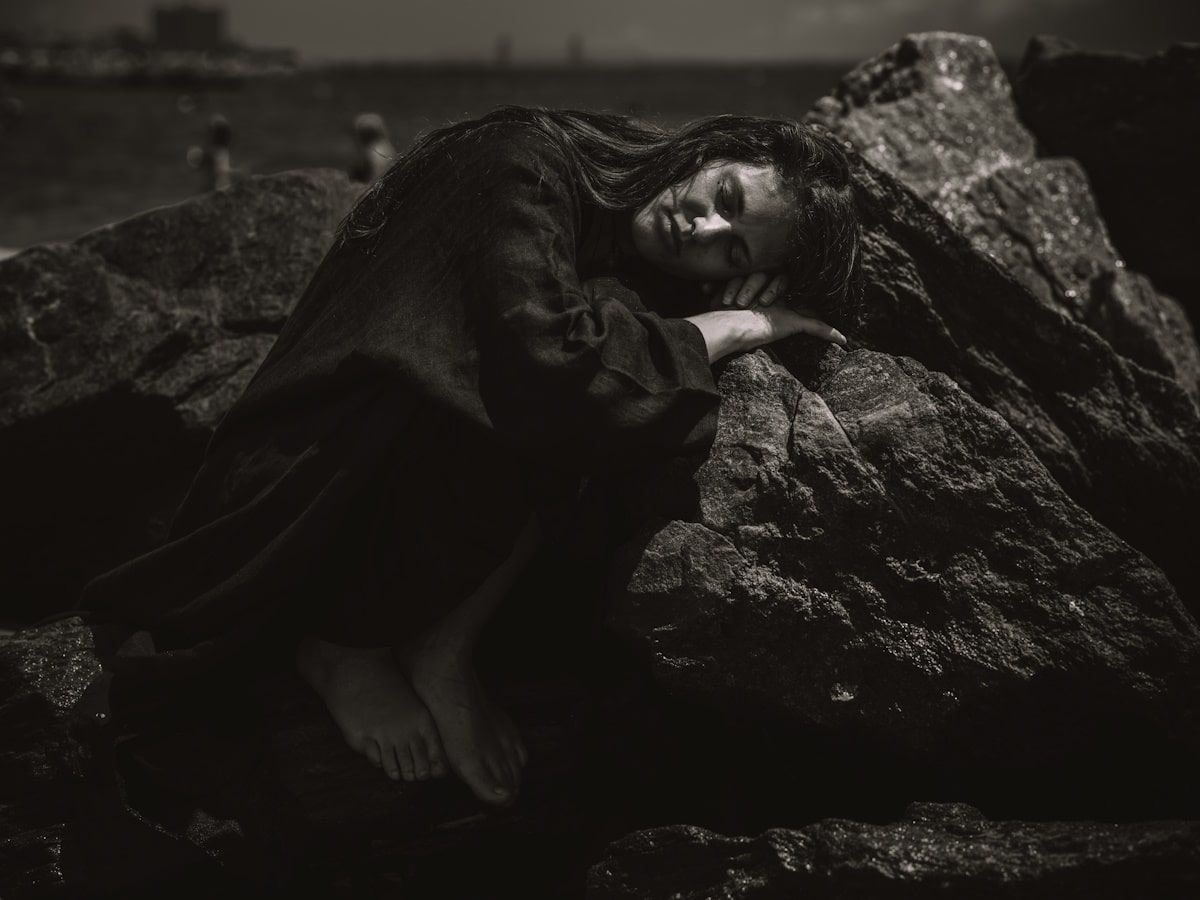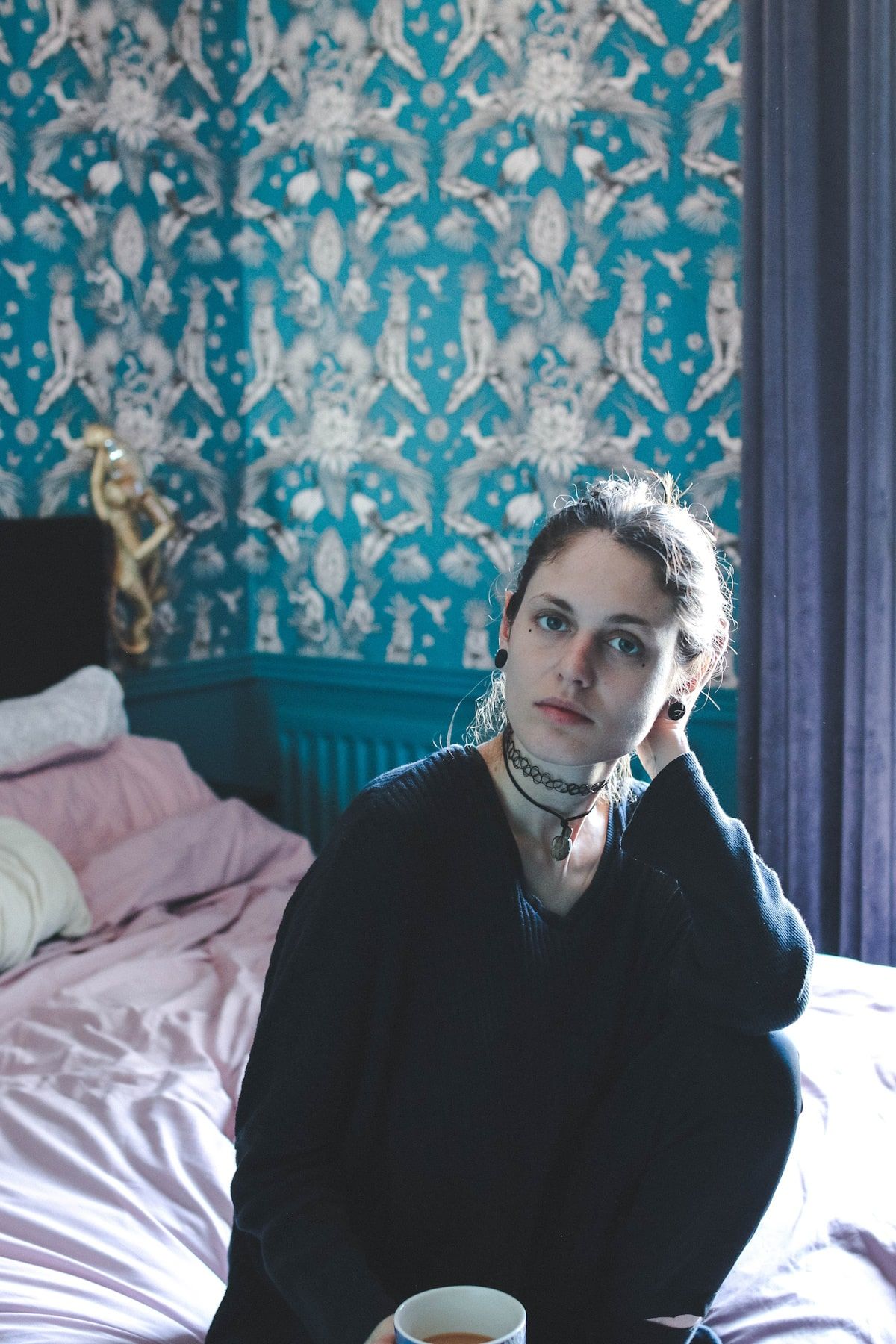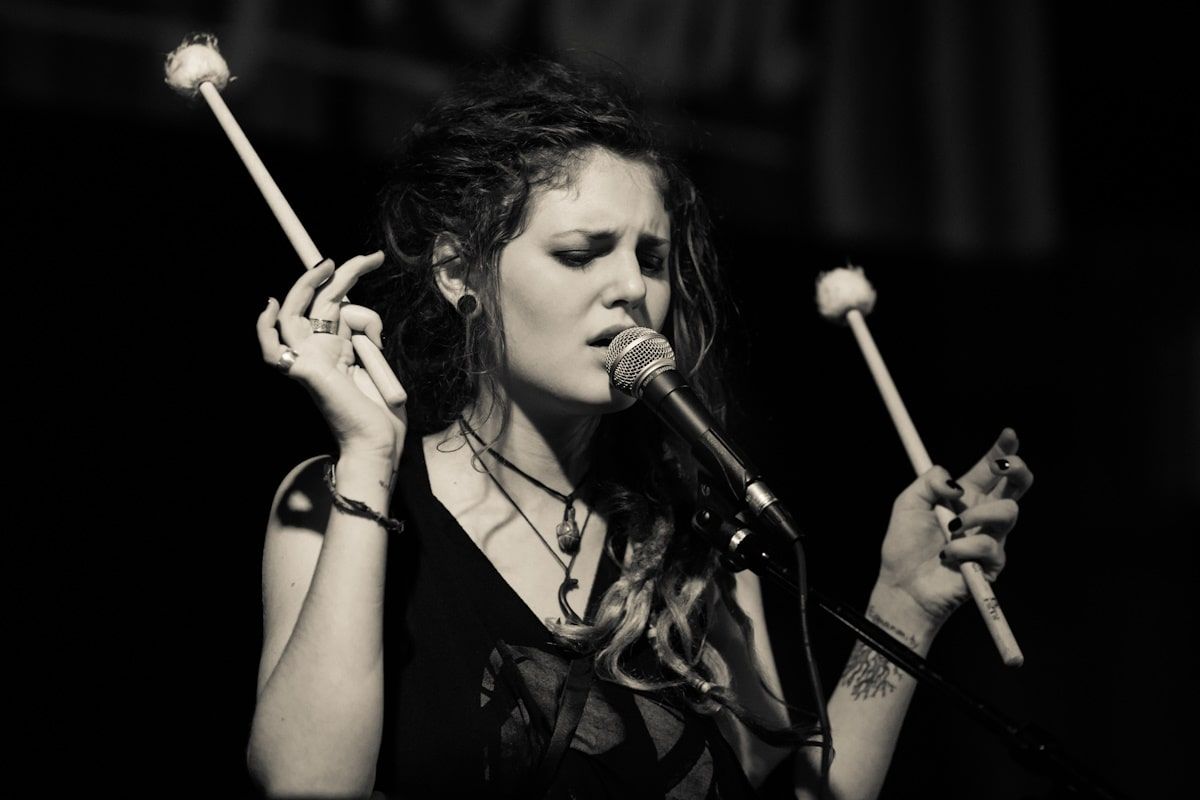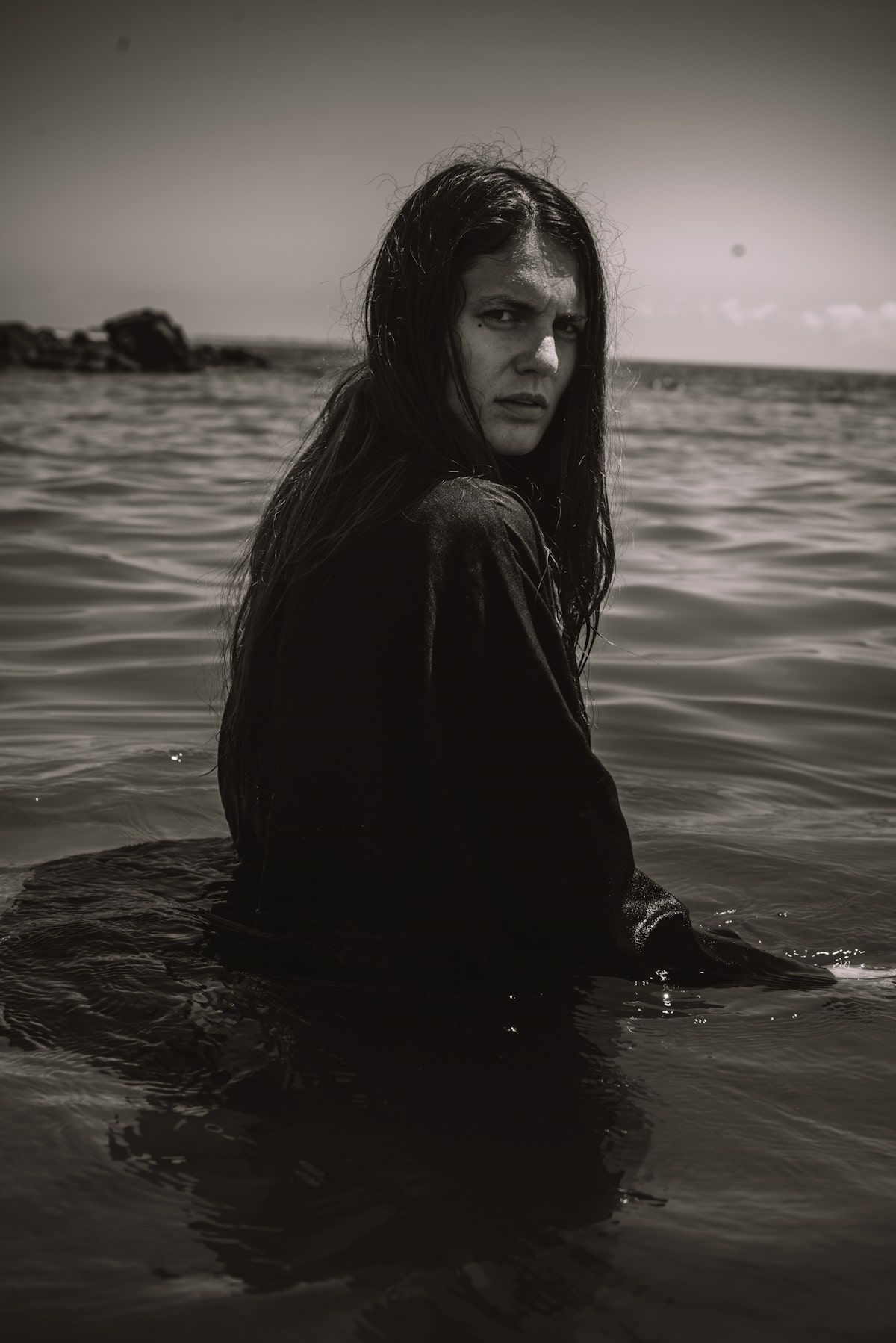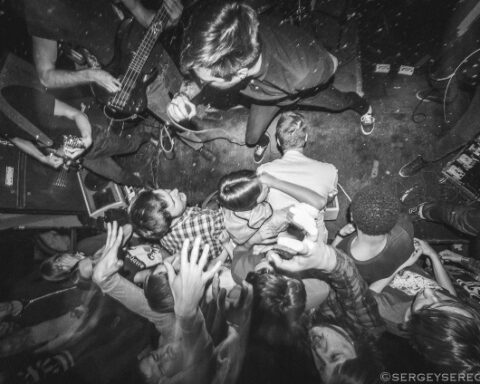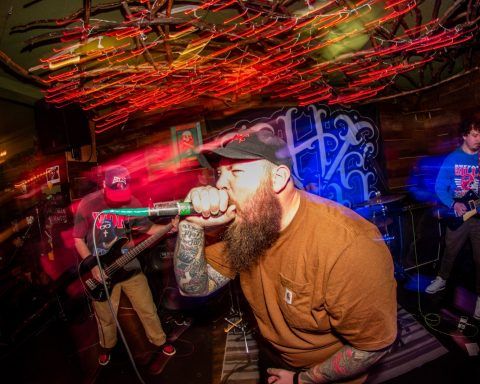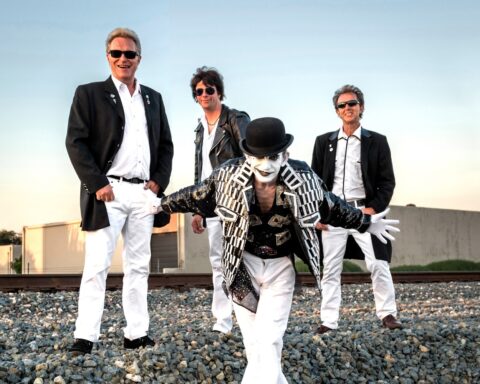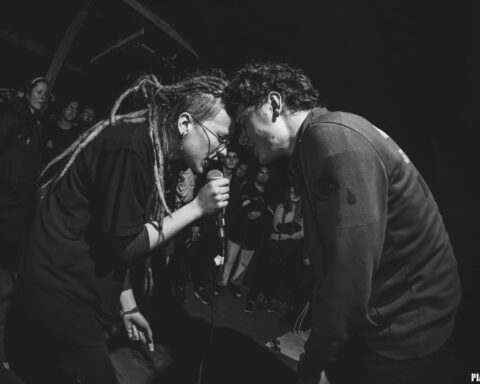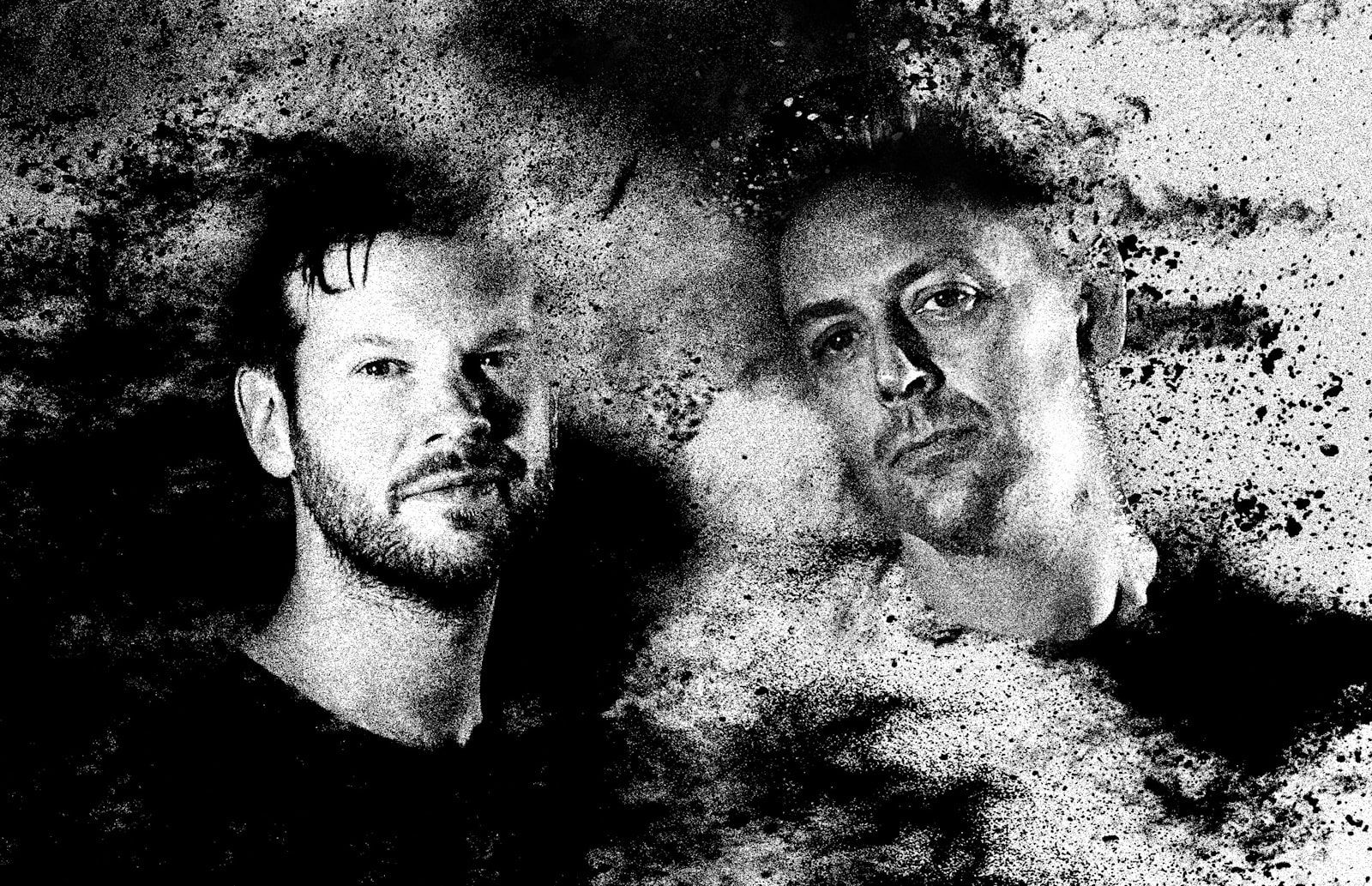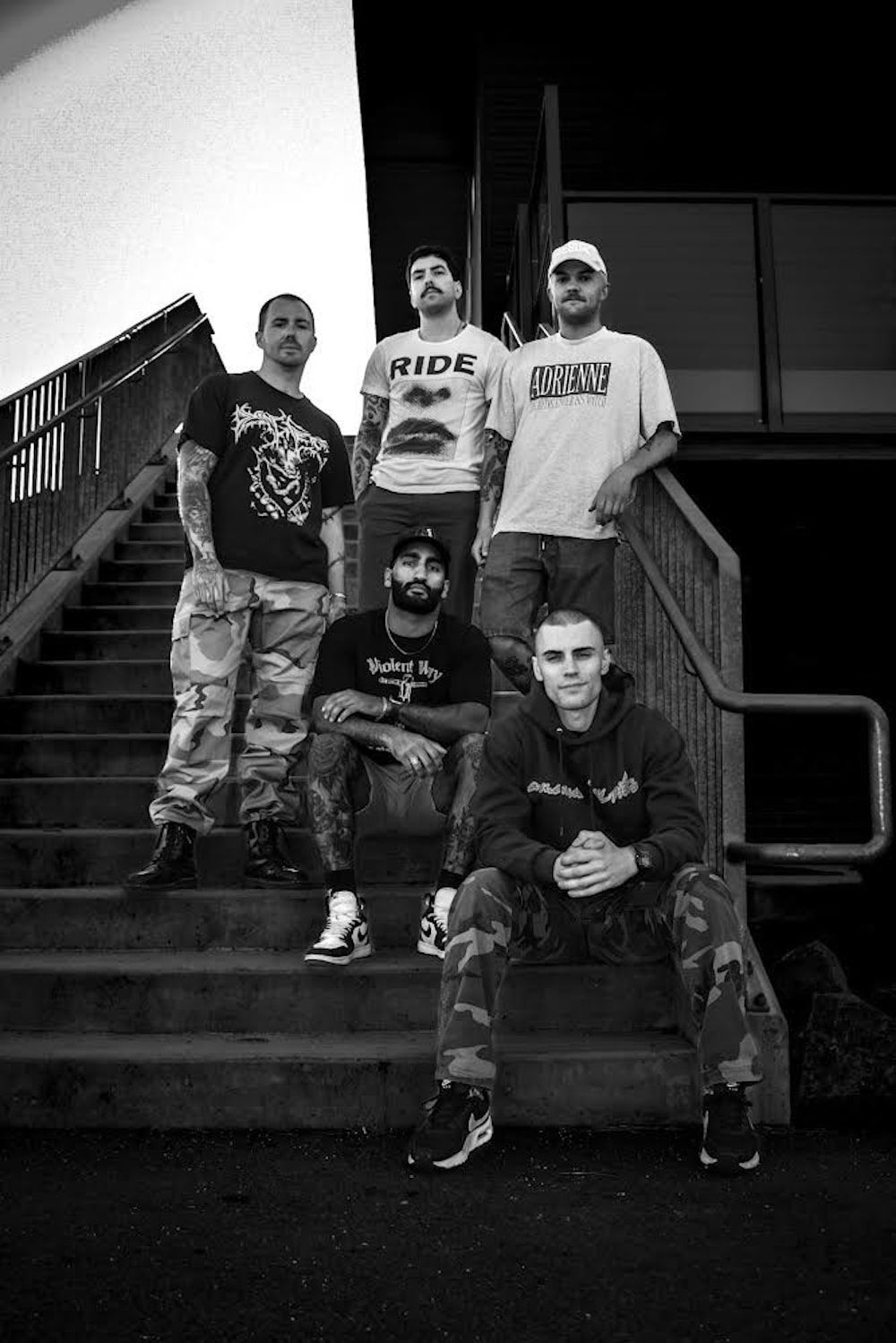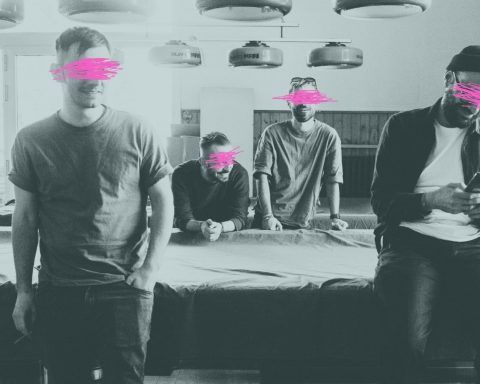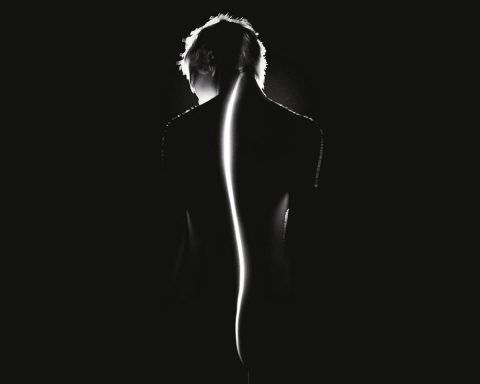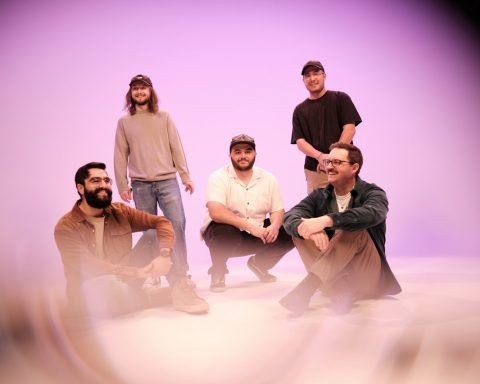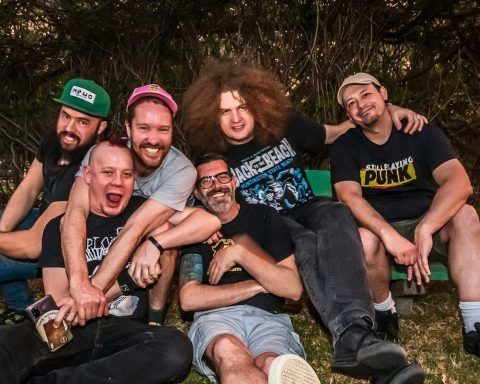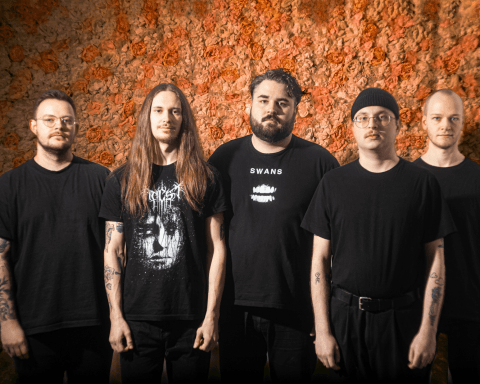Bridging the atmospheric echoes of Björk, the poetic ballads of Elliott Smith, and the distinct rawness of The Cranberries, Varya is a Moldovan-born singer-songwriter with a bent for soul-navigating music. Though her antecedents might nudge your expectations, she still draws you into a realm uniquely her own. A realm where, as Varya expresses it, “everyone else is just welcome to come along for the ride.”
Varya was raised in an environment resonating with the spoken and the unspoken musical language; she’s the daughter of a celebrated Moldovian musician and poet. From penning her first song at the tender age of 14, she demonstrates a poetic eloquence that seems as instinctual as breathing. Her creations unfurl as extensions of her soul, each note and syllable a ripple in the lake of her inner cosmos.
Varya’s sophomore album, “Oh Them Rivers,” reads like an abstract journal in a macrocosmic universe. It diverges from her debut album, “Bugbomb,” which can be seen as an emotional cartography of a young woman’s confrontation with love and loss.
“Oh Them Rivers,” instead, is more of a metaphysical reverie; it’s a musical prayer layered with enigmatic lyrics, existential symbolism, and hypnotic arrangements. It is an experience finely tuned for a time in human history that seems tethered between the apocalyptic and the rebirth.
“I wrote ‘Oh Them Rivers’ at a time in my life when I was feeling very stuck. It was a sort of loss of innocence, an awakening to all the scary things in the world that just dragged me down into this existential dread,” says Varya.
As we would come to discover in our in-depth interview with Varya —addressing topics ranging from her poetic upbringing to her existential musings—the album was born during the solitude imposed by the pandemic. The collective pause on human activity provided her a quiet alcove to delve deep and unearth the raw, spiritual undertones that structure this EP.
Varya reveals that the emotional gravity of the album crystallized during those isolated months. “When I started sharing these songs, I saw how deeply people felt them and thought that they too must have been looking for a similar light,” she reflects.
For Varya, music functions as a therapeutic modality—each song an incantation, a remedy for existential malaise. She composes first for herself, a notion that resonates with the authenticity she embodies. But in sharing her music, she inadvertently casts a wider therapeutic net, inviting us to a shared emotional pilgrimage.
“The pandemic was the perfect time to hide in a quiet basement for a few months and work on it without many distractions,” Varya notes about the recording process.
Varya’s music transcends mere auditory consumption; it provokes an emotional investment. Her ability to oscillate between cultures, instruments, and emotional registers creates an experience that is equally panoramic and introspective. If you’ve traversed world cultures, lingered on the edge of existentialism, or craved a sonic journey that reads like a contemplative novel, then Varya invites you into her emotional and poetic odyssey.
Check out our full interview below:
Coming from a family with a musical and poetic background, how would you describe the ‘language’ of your household growing up?
When it came to music specifically, I think the best way that I could describe it is that it was the backsplash to everything. It wasn’t presented as this special or sacred thing, it was just there. My parents both acted in the community theater, my dad was a well-respected poet and songwriter and both of them sang on a small stage for as long as I could remember. All their friends sang and played guitar, and yet, as far as I could tell, nobody was trying to “make it”.
Everyone had normal jobs and music was just the thing that our community did. Of course, all my musical pursuits were always supported and beyond welcome. But it never felt special. I had no notion of talent or making a career out of it, or anything like that. I now fully believe that my upbringing gave me this beautiful foundation and understanding of what music is even for, but as an immigrant and aspiring songwriter in my teens, who didn’t even realize that not everyone can sing until she was in a high school choir in NY, I was kind of mad at my parents for not giving me more training or shown that being a professional musician can be a career choice. I was definitely expected to get a “real job” and get on with my life while music remains a beloved hobby.
Your album is filled with coded lyrics and existential symbolism. Could you tell us about an Easter Egg that listeners should look out for in your album?
Oh, there are many! I love stealing little phrases from another concept or work and twisting them into my own ideas. Many more of my lyrics are just episodes from my own life which I like to put in without providing context to allow the feeling of them to tell the story rather than the story itself, if that makes sense. A fun Easter Egg that I love, and only one person that I know of has caught so far, is in The Fight. The line “Break the wheel” referred to Daenerys Targaryen from Game Of Thrones and her infamous pledge to break the wheel of the ones in power “crushing those on the ground”. I remember watching that scene, years before I wrote the song and thinking damn… that is a beautiful and such a powerful line!
If “Oh Them Rivers” was a landscape, what would it look like? What’s the weather like there? Also, if you could create a scent that encapsulates the essence of your new album, what would it smell like?
Hmmm, this is a good one. I think it changes slightly for me from song to song, but we are definitely in a thick forest somewhere, high up on a mountain, overlooking a deep, fast, roaring river. And though that is my visual, the smell has to be that of wet, mossy dirt, almost moldy, like in an old cellar or particularly boggy, mossy part of a wood. It feels very cold yet fresh and grounding. Quiet.
“The Fight” is inspired by Virginia Woolf. If you could have a dinner conversation with her, what’s the one question you’d want to ask?
What’s been the biggest obstacle to your writing throughout your life? For someone who wrote as much as she has, I wonder what her demons were that she had to overcome in order to continue writing in such massive quantities. Or were there obstacles at all? Maybe writing was such a necessary part of for own survival that it posed more of a difficulty to not write? I’d love to ask her this!
You describe a kind of existential dread in your creative process. Do you have any rituals or practices that help you navigate this emotional labyrinth?
Writing. Whether it’s songs or poetry or just brain-dumping onto a diary page, writing has always been the one thing that brings me the most clarity and helps me process what I’ve experienced. Most times if I’m writing a song, for example, I have absolutely no idea what it’s going to be about. But looking at it in retrospect, dissecting it and trying to make out what on earth I meant to say in it is like therapy.
It lets me know how I really feel about things which, for me, is usually step one in working through any inner turmoil.
Your music talks about ‘running with the rivers’ and ‘stepping out of molds.’ What’s the most mold-breaking thing you’ve ever done?
I can think of a handful of mold-breaking moments in my life. A big one that I am willing to share was coming out of 5+ years of strict Veganism. I was so hard-headed and committed, preaching to anyone who would listen about this new “truth” I thought I had found. Ending it felt like the biggest crash of my ego and identity.
The reason I quit and went to back to a normal diet was because my body was giving me very clear signs that this is not working and I am unhealthy. And, surprise, I felt immediately much better afterwards. So in a way it felt like coming out of a cult – this thing I believed in so deeply is shattered, I felt I had been lying to myself for years, thinking I was so enlightened.
Breaking out of this mold, over time, has softened and allowed me to see perspective in so many areas in life. I now can’t remember the last time I felt unequivocally right about anything and it is a beautiful thing. It taught me to never stop learning and looking at things from multiple angles.
You mentioned the pandemic gave you the solitude to focus on this album. Can you share a “behind-the-scenes” moment that shaped one of your songs?
I was working as a live-in nanny in a house that came with a basement where I would set up a little studio and work in the evenings. We were in a strict lock down for months so I definitely felt the solitude! In those early days of production it was just me, my voice and guitar in that basement. So you could say that what really shaped the album was the lack of other instruments. Traditionally, you would start with drums and bass and build the whole sound before going to the vocals, but this album had to be constructed backwards.
I got to play with my voice in ways I had never done before and I let the harmonies take up way more space than they probably would have, had I been working with a band right away. Everything else came afterwords and had to be written and recorded on top of already finished vocals. I don’t know that this is the smartest way to go about it but, hey, necessity is the mother of invention, right?
How did the multi-instrumental collaboration shape the essence of the album? Was there a particular instrument that surprised you in how it transformed a track?
Layering other instruments was at the same time the most challenging and fun part of this whole project. Mind you, we have never once got to sit in a room together and actually play these songs or hear the whole idea before recording anything. I just called on my old band mates and we did most of recording remotely.
The best and most surprising thing for me was writing parts for cello, trumpet and clarinet on my little midi keyboard, using godawful sounds I had on my computer and then hearing them come to life when the real instruments were recorded. It was really magical to hear and to realize that I could write parts like this for instruments I don’t even play.
You’ve said before that your music is a “three-dimensional world” you create. Who in your local music scene right now is helping you build that world or challenging it in a way you appreciate?
My buddy Gene Chaban, who is a brilliant sound designer and did the electronic production on Oh Them Rivers. This man is an absolute wizard and I never stop learning from him. See, when I write music I always imagine so much more than I can physically express. But watching him move so freely through different sounds is not only inspiring but it allows me to hear my own songs in a whole new light, to think and imagine even bigger.
Can you talk about any Moldavian artists or cultural elements that have recently inspired your work, especially for this album?
As a Post-Soviet child most of my musical influences growing up were from the Russian Bard scene, a music genre very much built on poetry as the main focus, usually accompanied by a gentle acoustic guitar. I did also sing in a traditional Moldavian school choir as well as a Jewish one as a kid so, needless to say, my early influences were quite diverse and the older I get the more I hear them coming through in my own writing.
You’ve explored many of the world’s musical cultures. How is the current musical atmosphere in Moldova shaping or challenging your artistic direction?
As sad as it might sound, I actually am not very connected to the current music scene in Moldova. However, if I think of my influences later in life I would say my adolescence was built on rock and pop-rock bands like Radiohead, Avril Lavigne, The Rasmus, plus a lot of Russian Rock bands. Then the older I got the calmer and more obscure my taste became, My most recent influences, and you can definitely trace some of them in my music today, are artists like Emily Wells, Alice Phoebe Lou, AURORA, Agness Obel and Alela Diane.
Are there any underground artists from your local scene that you think the world absolutely must hear?
Eve Lesov. Hands down. Eve is a dear friend, a poet and a songwriter who’s been a constant inspiration of mine throughout the years. The brutal honesty in her songs always manages to pull on just the right heartstrings. I think everyone should give her a listen.
What current global or local events or movements have found their way into your music or creative process?
In Oh Them Rivers specifically, while I tried to leave as much as possible to the listeners interpretation, I myself was hugely motivated by the environmental and political struggles we’ve been watching all through the past 5-6 years. Unwild, for example, has nature-inspired images like “While the wind in my hair turns a black cloud” and Lion’s Den is all about power struggles and trying to figure out whom to believe and who is a lier. I do like to keep it somewhat ambiguous so this is where I will leave it.
You consider yourself a poet first. What’s the most poetic non-musical moment you’ve experienced recently?
Ironically, that moment was while I was recording Oh Them Rivers in that lonesome basement. It’s almost as if my cup was full on the songwriting front, but because I was going through a big breakup and an even bigger transition in my own life I had to put it down somewhere else. As a result I started writing these endless, obscure, shapeless poems, a lot of which I have posted on my Instagram page. It was an entirely new genre for me and has helped me process so much of what I was going through!
Track by track commentary, by Varya:
Open Fears
Open Fears is the first song I have written for this album, and it felt like a perfect opening song. It’s a story about letting go, about allowing for imperfections and harsh realities of someone’s being to exist freely without judgment or negative effects of it on your own happiness. It’s an end-of-love song, a plea to let go of the people and things that are no longer serving us.
“It doesn’t have to be so hard to hold my cold and slippery heart. Let it slip. It doesn’t have to be so hard. Take all the things that break your heart, Let ’em go.”
The Fight
This song was actually inspired by Virginia Woolf, who is my favorite writer and a massive inspiration in a lot of my writing. At the time I was just discovering her work and being completely blown away by her brain, her life, her writing, and by her death.
She spent her whole life revolutionizing the world around her, fighting for women’s rights, redefining sexuality and gender norms, and changing the landscape of the entire world of English literature. And it killed her, literally. In the end she took her own life by walking into a river never to come back up.
So, in The Fight, I was trying to depict that moment of “walking into the white wild waves” dying for, or maybe, because of the weight of the fights that we put up in this world. I thought it was fascinating and heartbreaking and beautiful.
Unwild
This in my view is another love song in a way. An odd to our planet, humanity, greed, and how we have lost touch with ourselves as part of the natural, wild world around us. ” While the wind in my hair turns a black cloud, you and I are getting Unwild”
Molds
This is a song that will always be very near and dear to my heart. It’s about getting out of our rusty, factory-made molds; the boxes we were born, raised, and conditioned into – “We are made from our brother’s bones, seeing with our mothers’ eyes, afraid of our own”.
This song always inspires me as it invites the listener (and truthfully even myself, every time I sing it) to step out of that mold, trust their intuition, take that leap of faith, and follow the beat of their own heart instead of someone else’s.
Oh Them Rivers
Oh Them Rivers, the title track, follows Molds quite neatly, I think, as it picks up on the same idea of stepping out of one’s own comfort zone, stepping out of one’s own way in order to find more love, kindness, and softness in life. When we live and operate from a place of fear we often see the world as untrustworthy, cruel, and full of malice.
From that viewpoint, it is nearly impossible to see someone’s good intent or your own potential for goodness. So, once more, I invite the listener to step out of that stagnant space.
But, in order to do this we must let go of certainty and surrender to the greater unknowns in life – “Oh them rivers, running blind and heartless, let me run with them, don’t let me drown in these still waters.”
Lady, Please
Lady Please, similar to The Fight, follows the theme of a metaphorical death. Except this time I think the lesson really is to stay grounded, stay here and learn to live in this world we built, to find harmony with what is rather than seek (and die for) an idea and an ideal that may or may not exist in the first place. “There is still so much you could be, so much you could give, so much you could love”. “She murdered her soul for a wonder” when she could’ve chosen to stay and maybe, instead of fighting, to try and find peace by allowing the world to be exactly as it is.
Lion’s Den
Lion’s Den is once more painting a picture of what happens when we don’t follow our hearts and instead follow someone else’s rulebook, operating from a place of fear. We are so afraid of trusting ourselves, our own intuition. It is so much easier to just follow lead, trusting blindly that someone else will somehow magically hold the answers for us.
“While the lier dances on your shoulder wearing all white, I follow looking down, arms tied behind, I am ready to fight. But there’s no one left to fight…”
Follow all most important publications and social media profiles about Varya at this location.



